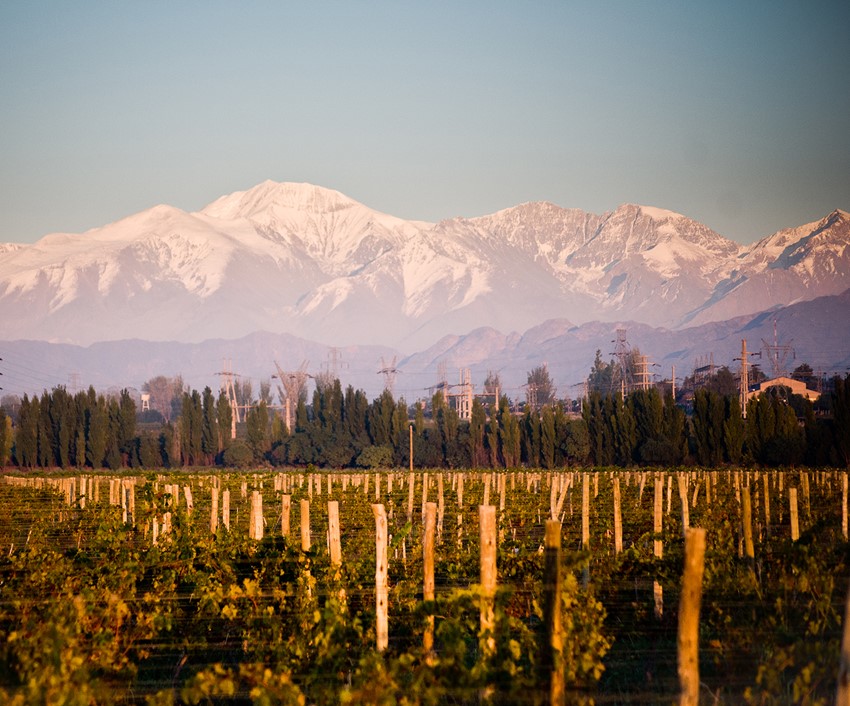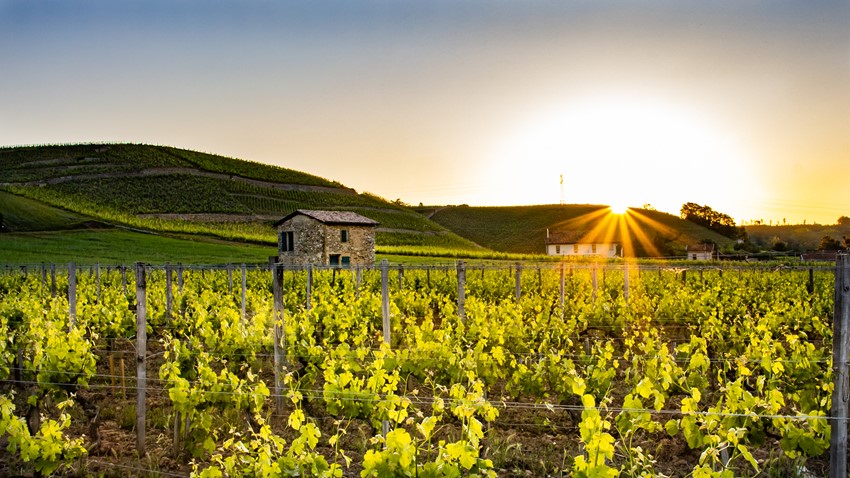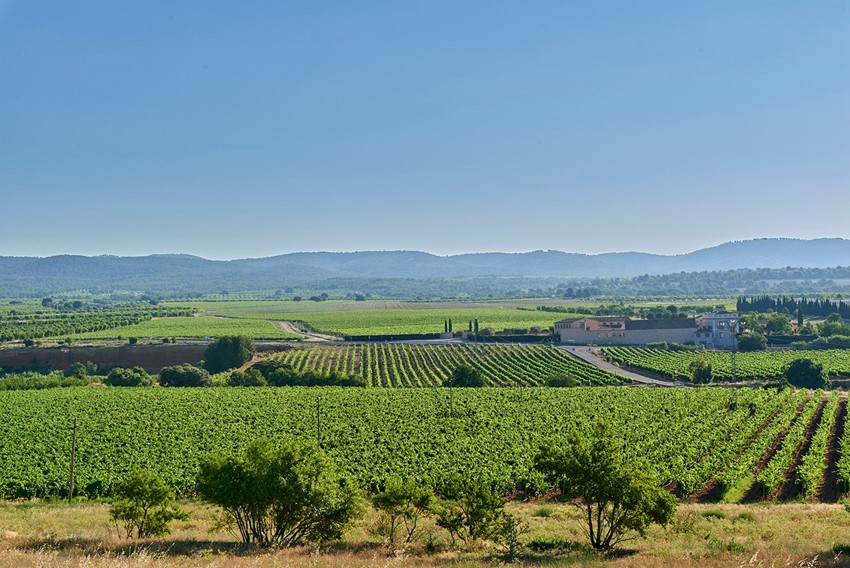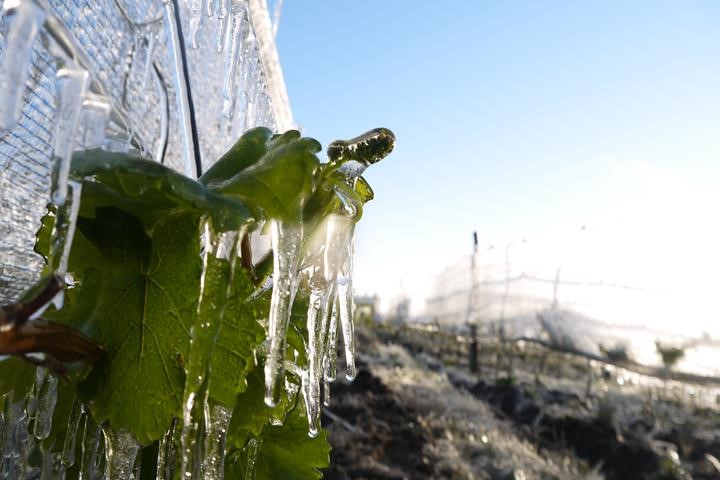At Bibendum we are serious about sustainability, and we partner with an increasingly long list of mindful producers. Why ‘mindful’? Because we believe that sustainability is about more than practicing organics or biodynamics – it is about improving and respecting the entire eco-system, and going about business in a mindful way.
Read more below to meet a few of our mindful makers.
Alois Lageder
A holistic approach

“Nature is much more powerful than we are,” says Alois Lageder, the eponymous founder of this pioneering Alto Adige estate. “Our objective as wine growers is to maintain and develop the complex systems of nature.”
Working entirely in sync with nature, family-run Alois Lageder are trailblazers of sustainability in Alto Adige, Northern Italy. Founded in 1823, and currently with the 6th generation of the family working in the winery, Alois Lageder has always strived to improve even more. Experimentation with biodynamic processes started in the 1990s, with the winery achieving certified status in 2004. Today, all of the family vineyards (about 55 hectares) are farmed biodynamically, and they are also inspiring some neighbouring farms to convert to organic and biodynamic farming.
The winery team strictly adhere to the principles of Demeter Italia in their biodynamic efforts. All of this is undertaken with an underlying belief that their entire estate – vineyards included – is a living organism, that works in its own rhythms of nature.
Having the freedom to select sites for their combination of soils, microclimate, altitude and aspect, grapes are grown in absolute optimal conditions – producing a wide variety of styles, including everything from an elegant Pinot Noir to a peachy Chardonnay. Read more here.
Argento
A 360 sustainable approach

Sustainability can take on many forms – environmental, human, financial – and when all three aspects work together, every stakeholder benefits. For Argento, the past decade has been all about reinventing and re-evaluating their own viticultural journey. Having started with soil health, Argento is currently the largest organic producer in Mendoza, Argentina. And despite all the other benefits of working sustainably and organically, it was primarily their pursuit for quality that pushed them in the direction of farming organically.
Spanning three regions – Lujan de Cuyo, Uco Valley, and Maipu – all of Argento's vineyards are organic and Fairtrade certified. In the winery, their top priority is to take care of the grapes in the most natural way possible, to produce terroir-expressive wines, with minimal reliance on oak.
Promoting human and labour rights, as well as ensuring good working conditions across their entire supply chain, Argento takes action to ensure that the wellbeing of everyone is taken into consideration. As a Fairtrade certified entity, they support local people through the Fairtrade premium that goes back to the communities. The Fairtrade premium is managed by a workers’ committee, so they get to decide on where to invest and whom to support. On top of that, Argento promotes non-discriminatory employment practices, freedom of association, and collective bargaining rights for the workforce. Read more here.
Jaboulet
Nature in perfect harmony
For Domaine Paul Jaboulet Aine, sustainability goes beyond certifications and guided practices. It is more than organics, or even biodynamics; it’s about a holistic approach that reinforces the biodiversity of their very special piece of earth. From planting hundreds of trees and creating two natural reserves in the woods and forests around the vineyards, to cultivating 1,500 square meters of organic fruit and vegetable gardens, it is no wonder they are considered the leaders in this field.

Determined to undo the damage caused by agricultural intensification and monoculture in the world of wine, Caroline Frey and her team have been an unstoppable force in creating and maintaining a balance between nature and their vineyards. They recognise that the viticultural ecosystem does not stop at the edge of their estate – and that in order for the vineyards to benefit from the best conditions and grow the absolute best fruit, the team encourages the biodiversity of their uncultivated land around the vines.
With the intent of preserving biodiversity by adopting a regenerative and virtuous agricultural model, Jaboulet encourages biodiversity in the uncultivated land around their vines. They have since established two biodiversity refuges on the outskirts of their vineyards: Le Clos Gounon in Mercurol, and Domaine de Roure in Gervans. Read more here.
Bodega Mustiguillo
Gentle farming and the revival of ancient varieties

On the cusp of a renaissance in the Mediterranean vineyards, Toni Sarrion's name has become synonymous with Spanish viticulture. Committed to organic viticulture and the pursuit of elegance and finesse, founder and winemaker Toni Sarrion took the local community by surprise when he focused his attentions on the Bobal grape – one of the most under-rated Spanish varieties, infamously linked to mass-produced wines of inferior quality.
Now named Finca Terrerazo, the estate is the heart of Bodega Mustiguillo, with ancient Bobal vines planted hundreds of meters above sea level which, in Toni's words, inspire authenticity. The estate was awarded a DOP in 2010, making it the first Vino de Pago single estate wine DO in the Mediterranean.
Following his success with Bobal, Toni expanded into his second estate, Finca Calvestra, championing another Mediterranean variety: the native Merseguera grape. With the recovery of ancient grapes came a series of revolutionary ideas. Toni introduced unprecedented viticultural practices to the region – from using vegetable covers in the vineyards and measuring success by leaf coverage, to personally selecting the year's vintage.
His vineyards are grown sustainably, and with undeniable soul, and a natural, sustainable attitude that promotes respect for the environment is upheld at all times. All Mustiguillo wines are also certified organic. Read more here.
Otronia
Grape growing in its most natural form
In the heart of Patagonia, Chubut is home to the world’s most southern vineyard, at 45.33° S. Otronia is situated on the shores of Lake Musters where, for such a dry and cool region, the soils are significantly fertile, with a mix of sand, river stones, clays and alluvial rocks from the nearby Andes. Allowing for dry-farming practices, Otronia has been able to grow the finest Chardonnay, Gewürztraminer, and Pinot Noir.
Ice-cold winds regularly batter the vineyards, which could not survive without various wind breaks helping to protect them. Three hundred thousand trees have been planted combined with hundreds of nets for vine protection.

With little or no humidity there is also hardly any need for fungal sprays, allowing the vineyards to be farmed gently and organically. Manure is added for nutrients, and the soils are ripped to break them up and assist the flow of oxygen and in turn improve the health of microbes in the soil. In other words, grape growing in its most natural form. Read more here.
Download our Eco Warriors guide for more producer stories, or find out more about all things organic, biodynamic and Fairtrade in our Mindful Winemaking – the lowdown brochure.




